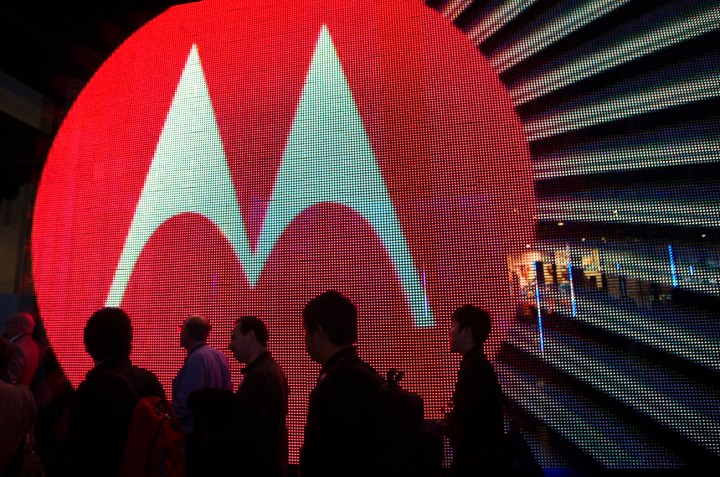Business Maverick, Sci-Tech
Is progress dead? What Google buying Motorola says about the future of our species

Cockroaches and lawyers: the two creatures set to outlast nuclear holocaust, global warming and the end of the world as we know it. But as economic Armageddon approaches, it’s starting to look bad for the cockroaches. Beneath all the hoopla, Google’s buying of Motorola suggests innovation has become increasingly costly, progress will be battled in increments by the legal profession and the very system by which we all live (or die)—capitalism buoyed by year-on-year growth—is being hoisted by its own petard. By RICHARD POPLAK.
Observe the multibillion-dollar argument: Google’s management insists it dropped $12.5 billion—more than two years worth of Zimbabwean GDP—on a company called Motorola, all in service of acquiring Motorola’s patents. Hogwash, say Google’s competitors (and many of their friends and service partners). Motorola represents Google’s move to dominate the handset market, and effectively close the loop between online content, operating system and hardware devices. The first argument is winning, by a long run.
In Cupertino, as you read this, men and women in very expensive running shoes are debating the merits of a bid for Nokia or RIM or both. Apple would also insist it’s about the patents. After all, last year a consortium including Apple and RIM purchased defunct Canadian telecom giant Nortel’s patents for $4.5 billion. Nortel was a company that imploded due to awful management, but its patents live on, like smiling, money-generating zombies. Those patents are valuable because they represented a legal time bomb embedded into every handheld device, set to explode by the only remaining element of Nortel that counts—its legal counsel.
A smartphone is not so much an invention as it is a series of tiny, compounded pieces of innovation developed over the course of the last 30 years. Almost 250,000 patents are bundled into one handset, and they belong to a range of interests—everyone from the lone, bug-eyed genius to Nokia’s Bangalore R&D team. Patent laws being what they are, almost as much blood and treasure is sunk into the legal paperwork on an iPhone as there is invested in actual new technology. Every time you dial your mom, you make an in-house lawyer smile.
Patents were created to protect intellectual property, and thus spur on innovation—mostly because an inventor knew that she would reap the benefit of her large brain and her hard work should she come up with something groundbreaking. In the old days, the fellow who invented the combustion engine knew that so long as he kept the patent, he was writing his own ticket. Technology is no longer that simple. The age of the large, single patent, all-encompassing invention seems to be behind us. What, we wonder, is left to invent? So, to progress, we shove our combustion engines full of electronic doodads, to the point that a car is now a jumble of patents for small innovations, numbering in the tens of thousands.
So much of a car company’s energy, or that of any corporation that makes and sells technological products, is dedicated to the protection of its own patents and the legal gymnastics involved in the use of outside innovations. Vicious patent protectors have not been treated well by history: George B Selden, the man who held the patent on any four-wheeled vehicle powered by a gasoline engine until the early twentieth century, is nowhere near as historically relevant as the man who fought to have those patents loosened. The present day is inconceivable without Henry Ford’s involvement in the automobile industry. In short, there is a good side to patent protection and a dark side too.
The dark side, as far as the car industry is concerned, is that more than a century after the invention of the combustion engine, we use vehicles that are only marginally different from their ancestors. Special interests like the oil industry, and the fact that the pace of innovation itself has slowed down due to the vicissitudes of the car industry patent market, mean that a brand new Audi is only superficially different from a Model-T Ford. It’s safer, quieter and has a radio, but it doesn’t fly, it burns gobs of fuel and it is in effect much, much slower, despite the power of its engine.
This winding down of innovation is not a good thing. The entire system of capital by which we live depends on progress. The developed world has grown on average, by 2% a year for 100 years, and this has ushered in an age of health and prosperity that would make Roman emperors envy the average office-worker for their proliferation of goods and the luxury of their Club Med vacations. This system is now under threat, in no small part because so much of our recent innovation—billions of bytes of human processing power—has been invested in the financial industry, developing unregulated products that worked like limpet mines attached to capitalism’s rigging.
Instead, argue anthropologists like Tyler Cowen, in his manifesto “The Great Stagnation”, we should be expending all our energies in the service of innovations that are both lucrative and world altering. Duh, say you. But this is a critical assessment. We are no longer searching for the low-hanging technological fruit, and instead must work harder and longer on bigger ideas to reap the same benefits inventors could once claim from something like wooden matches. And it doesn’t help that companies like Google, which has played a role in redefining how we find and catalogue human knowledge, must invest so much in buying up existing patents, protecting itself and its partners from lawsuits arising from its Android operating system, rather than on creating new technology.
Don’t get me wrong. The protection of intellectual property, due in no small part to patent laws, has been powering us forward through the industrial and information ages. But we seem to have reached something of an impasse. At the very moment when our financial systems is teetering due to an unmanageable burden of debt, we are stalling in our drive forward. Our space programmes are effectively shelved, we tinker with alternative sources of energy and continue gobbling oil and we apply innovation in the service of creating wealth (like the dreaded derivative) rather than creating products that can create wealth. (On my personal to-do list? The teleportation machine.) Progress is on the ropes. And Google—perhaps the sine qua non of progress in our depleted era—has now dropped $12.5 billion on what is, at least in part, a legal parry.
Never have we needed Big Ideas more. For those concerned that we are slipping inexorably toward another Dark Age, the billion-dollar purchase of patents acts as a harbinger. We are hoarding innovation rather than creating it. Oh, sure, Google still has one of the best R&D initiatives in the world. But the company does not have unlimited resources. Many more of them will be spent in the service of buying safety from patent lawsuits. In this, we need to find some balance quickly. Or we need to find a way to redefine progress and prosper without growth. If we fail to do either, we’ll drown in the soup of our stasis. DM
Read More:
- “A Bull Market for Patents” in The New York Times;
- “Google Buys Motorola Motility: Is This About More Than Patents?” in Investing Daily.
Photo: REUTERS




















 Become an Insider
Become an Insider